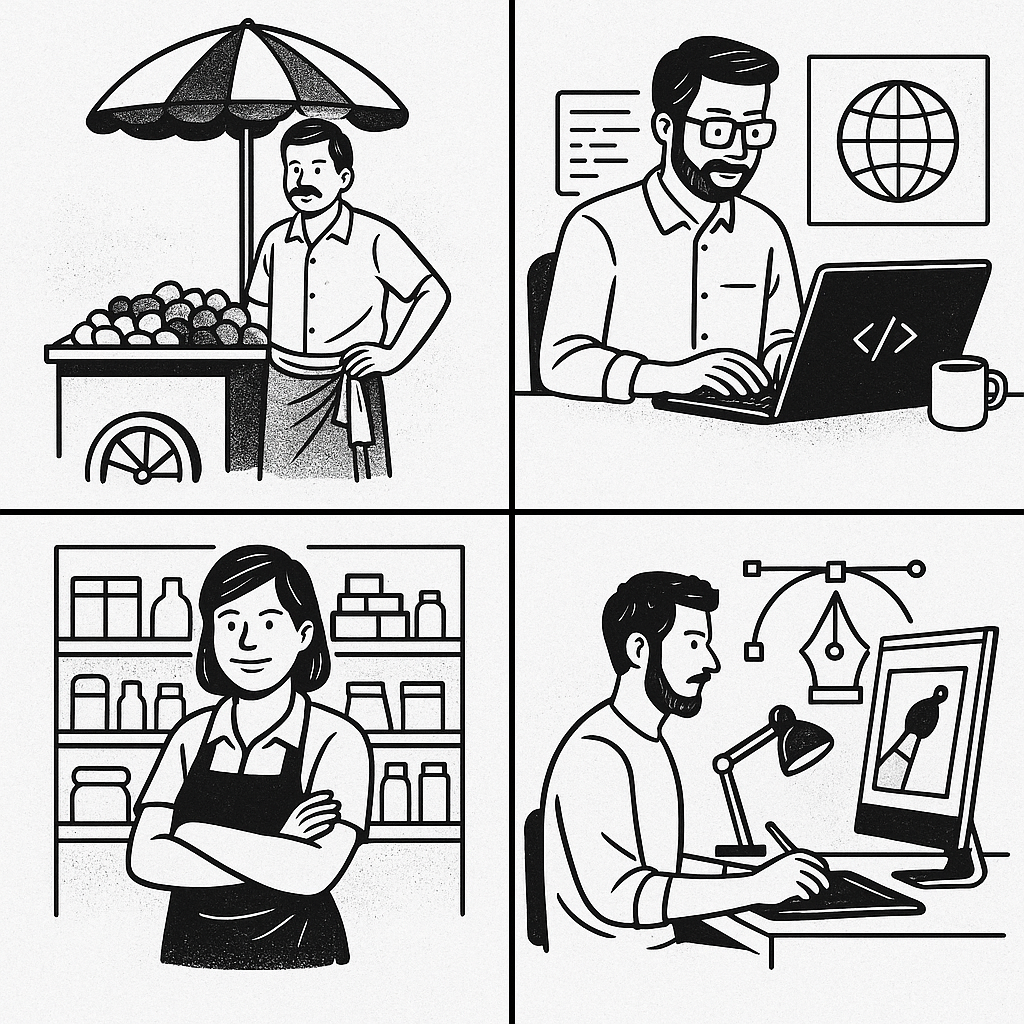Are You Really an Entrepreneur — Or Just a Business Owner? | by Sunali Aggarwal – Beon Systems | Sep, 2025

I once believed running a business automatically made me an entrepreneur. It took hitting scaling challenges to understand how wrong I was. True entrepreneurship begins where self-employment ends: in building something that can grow without you.
The Illusion of Entrepreneurship
When someone says, “I’m an entrepreneur,” it sounds impressive. But here’s the uncomfortable truth: not everyone who starts a business is truly an entrepreneur. You could be self-employed, a trader, or a small business owner — and still not qualify.
The real difference isn’t about what you start. It’s about whether what you build can scale without you.
Where Most People Get It Wrong
Most people equate running a shop, a restaurant, or even a small services firm with entrepreneurship. And in many ways, they’re right — it is brave to start and run a business. But here’s the catch:
- If your business only works when you’re physically present…
- If every decision still depends on you…
- If your revenue is tied directly to the hours you put in…
Then you’re not building an entrepreneurial venture. You’re running a business. There’s a big difference, and acknowledging it is the first step to growth.
The Entrepreneurial Mindset (And How I Learned It the Hard Way)
For me, entrepreneurship is not just about ownership — it’s about building a scalable business model.
I didn’t always see it this way. Before I started Trabug (a travel phone service for foreigners visiting India), I ran an agency. At the time, I proudly called myself an entrepreneur. But in reality, I was just an agency owner — my business depended on me being present, hustling, and constantly driving every project forward.
Even with Trabug, I had my wake-up call. The idea was exciting, and we built a product people loved, but when it came to scaling the model, I hit the same wall again. It made me realize that unless a business can grow beyond you — replicate itself, reach new markets, and operate independently — you’re not truly building as an entrepreneur.
That’s when my thinking shifted. From then on, I started looking at every new idea through the lens of scalability.
- A grocery store owner is a businessperson. But if they figure out how to replicate their store across 10 cities with consistent systems, they step into entrepreneurship.
- A chef running a single restaurant is a businessperson. But if they design a franchise model that works without them cooking every dish, they step into entrepreneurship.
Entrepreneurs think in terms of systems, automation, and replication. They design businesses that run with or without them. The founder’s vision sets the direction, but execution depends on processes — not on one individual’s constant presence.
Why Investors Bet on Entrepreneurs
This distinction is exactly why investors chase software and tech businesses.
Think about it:
- A local business grows linearly — you add more stores, more staff, more effort.
- A scalable business grows exponentially — once the system is built, expansion doesn’t require a proportional increase in time or cost.
- A SaaS company can onboard 100 or 10,000 customers with almost the same infrastructure. An e-commerce marketplace can add thousands of sellers without opening new physical locations.
That’s why investors pour capital into scalable models. They’re not just betting on the founder — they’re betting on the system’s ability to replicate itself, fast.
The True Litmus Test
So here’s the real question: can your business survive and grow without you in the driver’s seat every day? Can it expand beyond your city, your region, or even your country without reinventing itself from scratch?
If the answer is no, you’re running a business. That’s respectable, valuable, and often fulfilling. But it’s different from entrepreneurship.
Final Word
Entrepreneurship is not about starting — it’s about scaling.
I learned this first by getting it wrong — first as an agency owner, then even with Trabug. Both experiences taught me that a clever idea or a profitable service isn’t enough. The real test is whether the business can grow beyond you.
A true entrepreneur builds something that can run, replicate, and thrive independently. That’s what separates a business owner from an entrepreneur, and that’s what attracts investors to certain models over others.
So the next time you call yourself an entrepreneur, ask yourself: “Have I built a business that can scale without me?”
If yes — you’re not just in business. You’re truly an entrepreneur.


